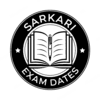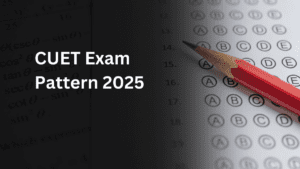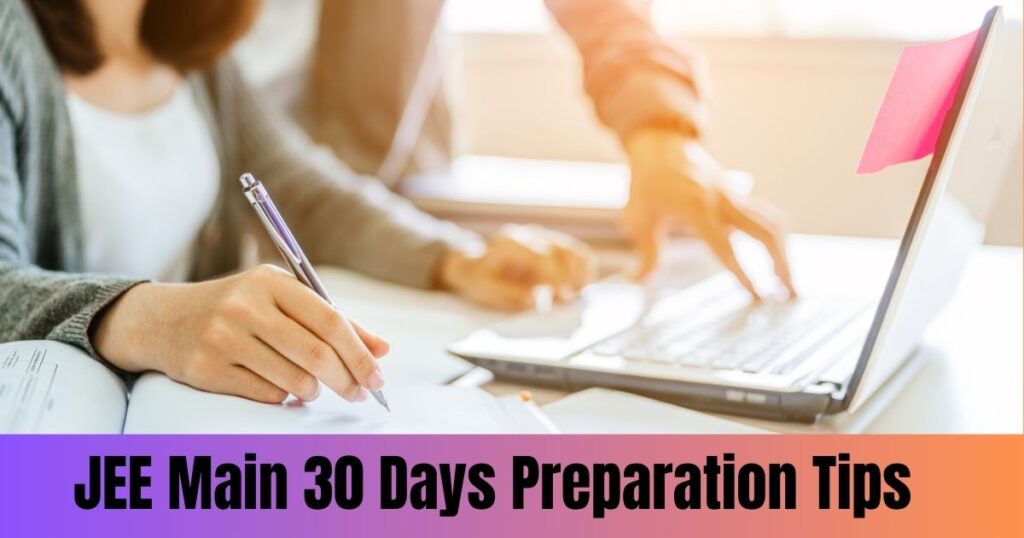Prepare for JEE Main 2025 in One Month – JEE main 2025 session 1 exam will be conducted from January 22-January 31, 2025. As the JEE main exam is less then a month away preparing for the exam may seem like an overwhelming task, but with the right strategy and unwavering focus, it’s entirely achievable. In this article, we will focus on how to prepare for JEE main 2025 in one month.
Understanding the JEE Main Exam
Before diving into preparation, it’s crucial to understand the structure of the JEE Main exam.
Exam Format and Syllabus
JEE Main comprises three sections: Physics, Chemistry, and Mathematics. Each section carries equal weight, with questions designed to test conceptual understanding, problem-solving skills, and speed. Reviewing the official syllabus is your first step to identifying key areas.
Importance of Key Topics and Weightage
Analyze past papers to pinpoint topics with higher weightage. For example, topics like Mechanics in Physics, Organic Chemistry, and Calculus in Mathematics often dominate the exam. Prioritize these areas to maximize your score.
Assessing Your Current Position
Strengths and Weaknesses
Take a diagnostic mock test to identify your strengths and weaknesses. This step ensures you don’t waste time on topics you already excel at and focus on areas needing improvement.
JEE Main Preparation Tips – One Month Study Plan
Weekly Targets
Divide the syllabus into weekly segments, ensuring that all high-priority topics are covered. Each week should include time for studying, revision, and practice tests.
Daily Study Schedule
Create a daily routine with fixed time slots for each subject. Allocate additional time for weaker areas and maintain regular intervals for breaks to stay refreshed.
Prioritizing High-Weightage Topics
Physics: Key Concepts and Formulae
Focus on topics like Mechanics, Electricity and Magnetism, and Thermodynamics. Memorize important formulae using flashcards.
Chemistry: Essential Chapters
Prioritize Physical Chemistry concepts, Organic reaction mechanisms, and Inorganic Chemistry trends.
Mathematics: Focus Areas
Master Calculus, Algebra, and Coordinate Geometry. Practice derivations and shortcuts to solve problems efficiently.
Time Management Strategies
Balancing Speed and Accuracy
Set a timer while solving questions to simulate exam conditions. Focus on maintaining accuracy without sacrificing speed.
Allocating Time for Revision and Testing
Dedicate 25% of your daily schedule to revisiting topics and solving practice tests.
Study Materials and Resources
Recommended Books and Online Resources
Stick to trusted materials like NCERT textbooks, H.C. Verma for Physics, and R.D. Sharma for Mathematics. Supplement your studies with online lectures and question banks from reliable platforms.
Mock Test Platforms
Enroll in reputed mock test series to practice under exam-like conditions.
Mock Tests and Practice Papers
Importance of Practice
The more you practice, the more familiar you’ll become with the exam pattern and question types.
How to Analyze Mock Test Results
Review every mock test to understand your mistakes. Use these insights to fine-tune your preparation strategy.
Problem-Solving Techniques
Shortcut Methods and Tricks
Learn time-saving techniques like substitution methods for solving equations and mnemonic devices for memorizing concepts.
Tackling Difficult Problems
Break down complex problems into smaller steps to improve clarity and approach.
Effective Revision Techniques
Flashcards for Formulae
Prepare flashcards for quick revision of key formulae and definitions.
Summarizing Key Concepts
Write concise notes summarizing critical concepts for last-minute revisions.
Managing Stress and Staying Motivated
Relaxation Techniques
Incorporate breathing exercises and meditation into your routine to manage stress.
Setting Achievable Goals
Celebrate small milestones to keep yourself motivated throughout the preparation journey.
Diet and Health Tips for Exam Preparation
Importance of a Balanced Diet
Consume nutritious meals to maintain energy levels and mental alertness.
Physical Activity for Mental Alertness
Include light physical activities like yoga or walking to refresh your mind.
Avoiding Common Mistakes While Preparing for JEE Main Exam
Over-Reliance on Less-Relevant Topics
Avoid spending excessive time on topics with low weightage.
Ignoring Time Management During Tests
Practice time allocation for each section to avoid rushing during the actual exam.
Using Technology Wisely
Apps and Tools for JEE Preparation
Utilize apps for mock tests and concept revisions. However, avoid distractions like social media during study hours.
Seeking Guidance and Mentorship
Importance of Mentors
Connect with teachers or mentors who can provide clarity on difficult topics.
Peer Group Discussions
Engage in discussions with peers to share insights and solve doubts collaboratively.
Final Week Preparation Strategies
Revising High-Priority Topics
Focus on high-weightage chapters and avoid starting new topics.
Mock Tests Under Exam-Like Conditions
Take full-length tests during the same time slot as your actual exam.
The Day Before the Exam
Relaxation Techniques
Stay calm by avoiding over-studying and focusing on relaxation.
Reviewing Essential Formulae and Concepts
Quickly revise your flashcards and short notes for a confidence boost.
FAQs About Preparing for JEE Main 2025 in One Month
1. Is one month enough to prepare for JEE Main?
Yes, with a well-structured plan and dedication, you can focus on high-weightage topics and excel.
2. What are the best books for last-minute JEE Main preparation?
NCERT textbooks, H.C. Verma for Physics, and R.D. Sharma for Mathematics are excellent resources.
3. How many hours should I study daily?
Aim for 10-12 hours with regular breaks to maintain productivity.
4. How do I manage stress during preparation?
Incorporate relaxation techniques like meditation and short breaks into your routine.
5. Should I attempt mock tests daily?
Yes, daily mock tests help improve speed and accuracy.
6. What should I do if I feel underprepared?
Focus on revising high-priority topics and practice solving previous years’ question papers.







